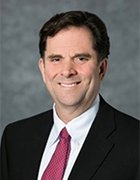
Maksim Kabakou - stock.adobe.com
Trump's H-1B work visa ban creates six-month headache
President Trump's six-month H-1B work visa ban arrives in response to the jobs impact of the pandemic. But it's unlikely to have much of an effect on jobs.
President Trump's ban on new H-1B work visas will be disruptive. Foreign workers and their employers who were counting on visas won't get them. The ability of multinational firms to move employees internationally will be stymied. There will be frustrations, but the ban's overall impact of bringing highly skilled foreign workers into the U.S. may be limited.
The executive order barring new work visas takes effect June 24 and expires at year end. The reason given for the order is to protect U.S. jobs during the coronavirus pandemic. But Trump's action is unlikely to have a significant impact on domestic hiring. It may well prompt some firms to do more work offshore.
"I think this can be managed for a six-month period," said David Rutchik, executive managing director at outsourcing consultancy Pace Harmon in Vienna, Va. That's not to say it won't have some impact, he said.
For firms in the process of obtaining an H-1B work visa or an L-1 visa used for intracompany transfers, "that stops -- they can't have anybody new coming in," Rutchik said.
A critic of the H-1B work visa program, Daniel Costa, director of immigration law and policy research at the Economic Policy Institute (EPI) in Washington D.C., said Trump's proclamation "seems mostly symbolic and not like a real attempt to reform the programs -- a ban doesn't fix anything."
 David Rutchik
David Rutchik
The EPI recently published a study arguing that the H-1B program is allowing employers to undercut the wages of U.S. workers.
"I'm skeptical that after three and a half years of doing nothing on this, Trump has suddenly had a change of heart and will improve labor standards for U.S. workers and migrant workers," Costa said.
Major changes to the H-1B work visa program requires actions by Congress. But what businesses and immigration experts will be watching for are the regulations, drafted by the Labor Department and other agencies, that may emerge from this order. Those will determine how the executive order works.
Obstacles ahead
Broadly, the executive order doesn't impact H-1B visa workers in the U.S. But if H-1B workers were planning to bring their families to the U.S., Trump's order may be an obstacle.
Workers overseas and approved for new visas for the next fiscal year, which begins Oct. 1, may have to wait until early next year for those visas.
 Sang Shin
Sang Shin
Foreign students who are working in the U.S. on student visas under the Optional Practical Training (OPT) program, a companion to the H-1B visa program, may be unaffected. STEM (science, technology, engineering and mathematics) graduates can work for up to three years under OPT. The STEM extension was originally designed to give employers more than a single chance of winning the H-1B lottery, which is used when the number of visa applications exceeds the 85,000 work visas issued.
Trump's immigration suspension didn't address the OPT program, but the order calls for unspecified regulatory actions.
 Jimit Arora
Jimit Arora
"How it is implemented and how it is carried out is another thing altogether," said Sang Shin, an immigration attorney at law firm Jackson Walker LLP in Houston.
The IT services industry, which is a major user of H-1B visas, operates on what's sometimes called an 80/20 model. It offshores 80% of the U.S. work and performs 20% in the U.S. The 80/20 model, and the subsequent displacement of U.S. workers, is something that Trump has long rallied against.
But the COVID-19 pandemic has forced U.S. firms to become better at working remotely, and it may also make companies more comfortable with outsourcing work offshore, said Jimit Arora, a partner at the Everest Group, an outsourcing consultancy in Dallas.
 Karine Wenger
Karine Wenger
The new offshore model
The pandemic may have some customers of IT services firms considering a 90/10 model -- where only 10% of the work remains on the customer site in the U.S., Arora said.
Karine Wenger, an immigration partner at Fragomen, Del Rey, Bernsen & Loewy LLP in San Diego, said the Trump order is "a big disruption." Visa holders overseas could potentially be stuck there, and those in the U.S. may be unable to bring their dependents over. "There's a family separation impact potentially to it," she said.
Another major impact concerns the L-1 visa, which was designed for global mobility of employees within an organization, she said.
"They are not going to be able to leverage that free movement of workers within their global organization as easily as before," Wenger said.




